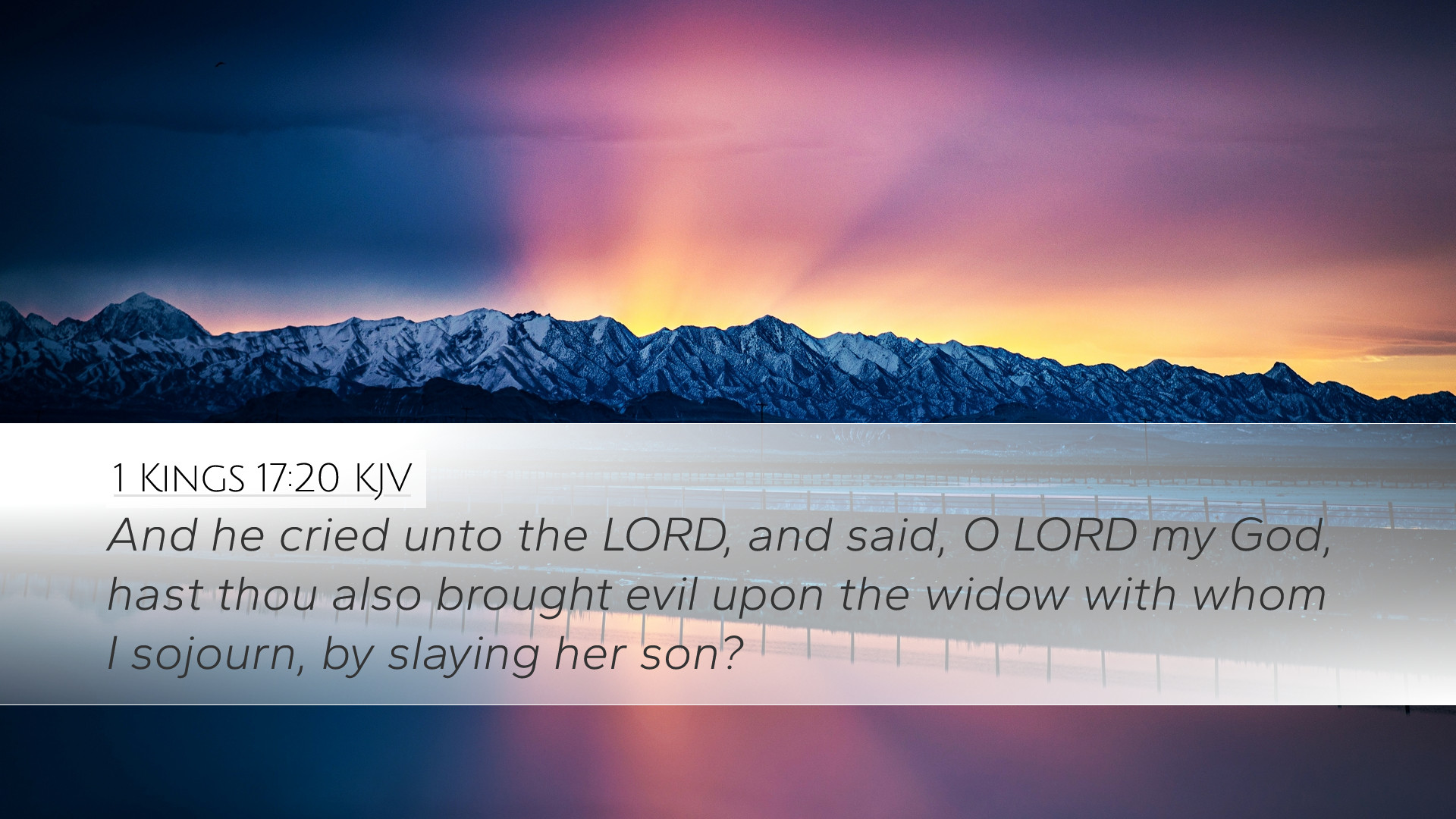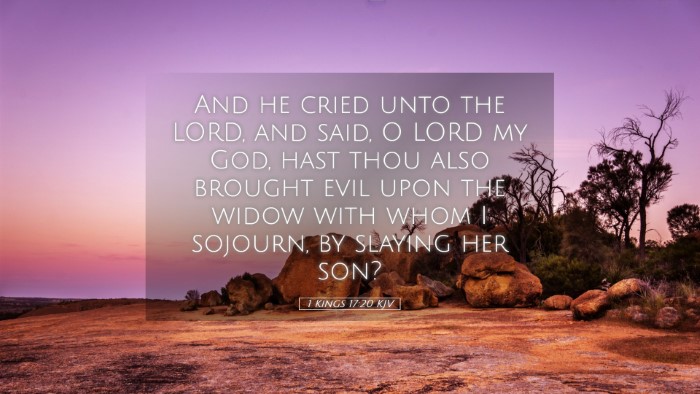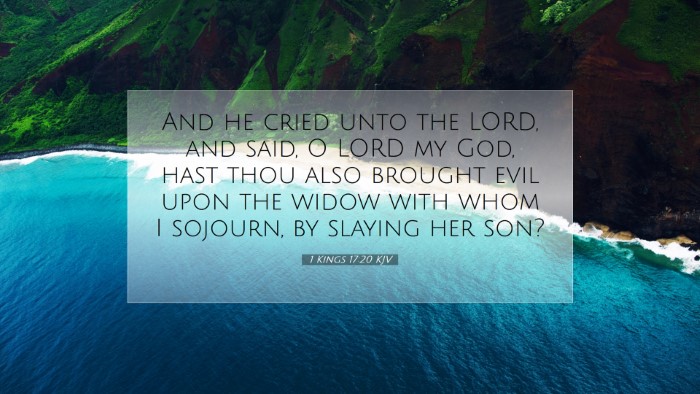Commentary on 1 Kings 17:20
Verse Context: 1 Kings 17:20 states, "And he cried unto the LORD, and said, O LORD my God, hast thou also brought evil upon the widow with whom I sojourn, by slaying her son?" This verse captures a moment of intense anguish and questioning faced by the prophet Elijah during a profound crisis.
Background Information
The context surrounding Elijah's ministry is crucial in understanding this verse. Elijah, a prophet of the Lord, was sent to Israel during a time of great apostasy and idolatry under King Ahab. He had taken refuge in Zarephath, where he was provided for by a widow. This widow's son suddenly passes away, leading to Elijah's desperate cry to God.
Theological Themes
- The Nature of God's Sovereignty: Elijah questions the sovereignty of God in bringing a calamity upon a faithful widow. This raises significant theological reflections about God's involvement in human suffering.
- The Role of the Prophet: Elijah's immediate response to seek the Lord reflects the responsibility of prophets to intercede on behalf of those suffering.
- Divine Compassion: The narrative highlights God's compassion for those who are vulnerable, emphasizing that even in tragedy, God's actions are purposeful.
Insights from Public Domain Commentaries
Matthew Henry's Commentary
Matthew Henry emphasizes the distress expressed by Elijah as he confronts the widow's grieving heart. He points out that the prophet was not only concerned for the widow but also for the honor of God amidst suffering. Henry underscores that the circumstances seem contradictory to God's character, prompting Elijah’s heartfelt plea as an inquiry into the juxtaposition of divine goodness and the evil experienced by the widow.
Albert Barnes' Notes on the Bible
Albert Barnes elaborates on the emotional weight of the passage, highlighting that Elijah’s question reveals a deep struggle. According to Barnes, it opens up the dialogue about divine retribution and human experience. He suggests that the prophet was wrestling with the implications of God allowing suffering, reinforcing that these moments are not just challenges but also invitations to deeper faith and understanding.
Adam Clarke's Commentary
Adam Clarke focuses on the cry of Elijah as a significant moment of direct communication with God. He suggests that this prayer was vital for the restoration of faith, both for Elijah and the widow. Clarke emphasizes God's willingness to engage with His prophets and His people, highlighting the relationship between human duress and divine intervention. This commentary invites readers to consider how prayer shapes the believer's relationship with God during crises.
Applying the Passage
This verse prompts reflection on several spiritual applications:
- The Honest Expression of Grief: Believers are encouraged to approach God with their fears and questions. Just as Elijah voiced his concerns, so should we share our doubts with God, recognizing His capacity to handle our emotions.
- The Call to Intercession: The role of interceding for others, especially in times of suffering, becomes paramount. Followers of Christ are invited to join Elijah in lifting up the needs of those around them.
- Trusting in God's Plan: Understanding and embracing God's sovereignty even amidst sorrow is vital. This verse reminds us that our perception of calamity may not reflect God's ultimate plan for our lives.
Conclusion
1 Kings 17:20 captures a pivotal moment in biblical history where a prophet confronts the complexities of God's sovereignty against the backdrop of human suffering. Insights from Matthew Henry, Albert Barnes, and Adam Clarke enrich our understanding, providing a multifaceted view of grief, divine purpose, and prayer. For pastors, students, theologians, and scholars, this commentary urges a deeper engagement with the Scriptures, encouraging believers to take their struggles to God, trusting in His goodness and mercy.


